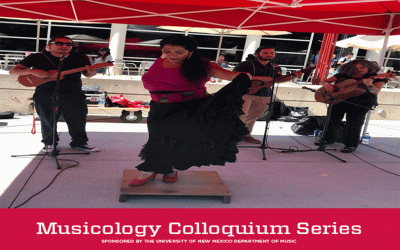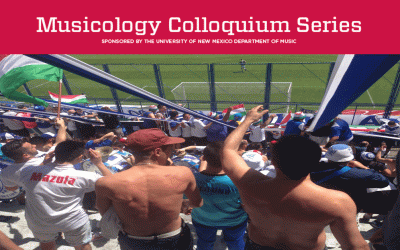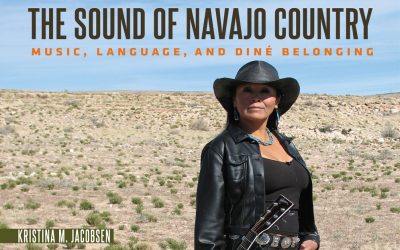On April 22nd, KUNM Music Director invited this semester’s members of the UNM Honky Tonk Ensemble, an ensemble that teaches students how to play in a band and that emphasizes the style of classic country music from the ’50s, ’60s and ’70s, to come into KUNM’s Studio A to do a studio session of songs they’ve performed over the course of the semester. Students and community members in the Ensemble performed their songs, and then did an interview, afterward, together with ensemble founder and co-facilitator, UNM Music faculty member Dr. Kristina Jacobsen. Here, they discussed their experiences learning to more deeply appreciate this genre of working-class verbal art through the performance of it, describing their experiences learning to sing, and play, in a “country” style throughout the course of the semester.” This show will be featured in hour-long broadcast on KUNM’s “Ear to the Ground” on Saturday 5/11 from 7-8 pm, and will be streamable through on their two-week archive after it airs, as well as on the KUNM Studio Sessions page. This semester’s ensemble includes: Seirra McDowell-Nardine, Nathan Lesiak, Aubrie Powell, Eric Schaller, and co-facilitator Alex McMahon. The Ensemble is open to UNM students, staff, and Albuquerque musicians, and begins again in August 2019. Please contact Kristina Jacobsen (kmj23@unm.edu) or Paula Corbin-Swalin (pcswalin@unm.edu) for more information.

Sones de allá para acá: Son Jarocho from Mexico to USA
Son Jarocho is a genre of traditional Mexican music performed in southern Veracruz that has gained prominence in Chicanx communities in the United States. In this talk we will analyze the origins, rhythms, musical forms, and dances both in Mexico and the United States.
Embodying Fandom: Chanting in Twentieth-Century Argentine Soccer
Argentine soccer fandom involves a nuanced set of bodily practices and a vast repertoire of chants based on radio hits and broadcast advertisement. This talk demonstrates how chanting brings together sounds and bodies in an affective public practice that incites intense feelings of social cohesion and belonging meaningful beyond what is being said with words.
Dr. Kristina Jacobsen is awarded the 2018 Woody Guthrie Book Award
Dr. Kristina Jacobsen, Assistant Professor of Ethnomusicology in the UNM Department of Music, is awarded the 2018 Woody Guthrie Book Award for the most outstanding book in popular music by the International Association for the Study of Popular Music (IASPM-U.S.).



